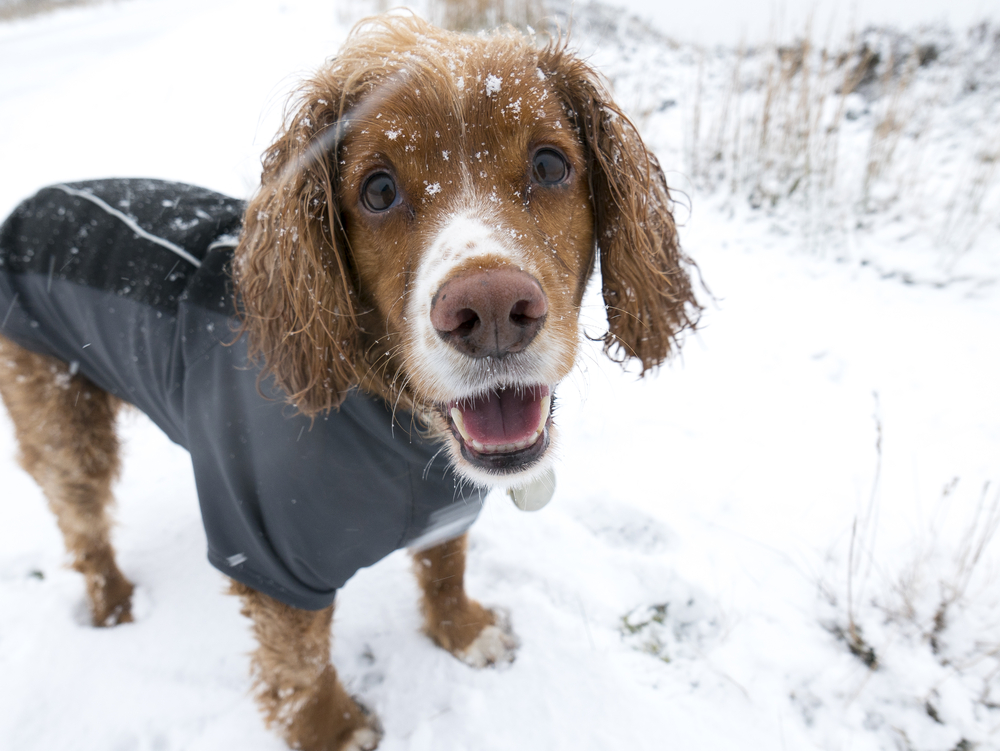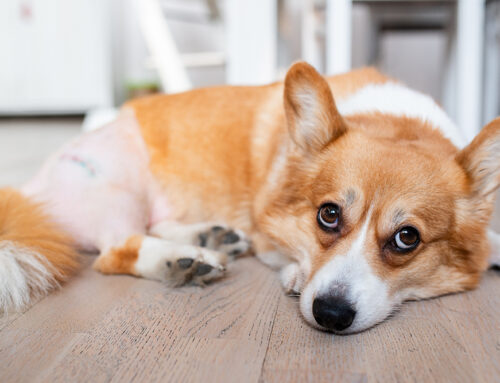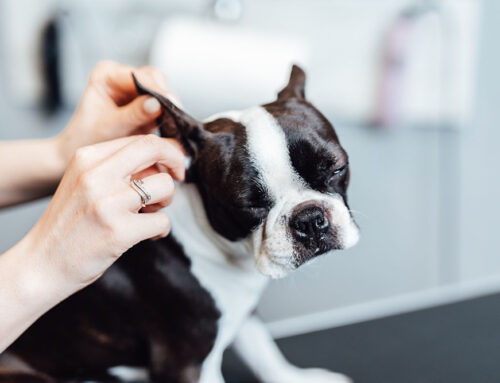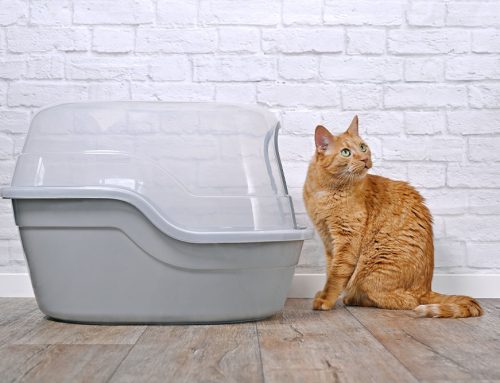Snow and cold weather are normal here in winter in the Hudson Valley, with average winter temperatures in the 30 degree range, but feeling much colder. As you prepare for winter, ensure you include preparations for your pets. Your LaGrange Animal Hospital team is here to help—read on for our helpful tips to keep your pet safe throughout the winter.
#1: Keep your pet indoors
Being outdoors on blustery winter days is uncomfortable for you and can be dangerous for your pet. Minimize outdoor walks and playtime when temperatures dip, and never leave your pet unattended outdoors, because you can easily lose track of time and expose your pet to dangerous cold situations. Instead, go outside more often for shorter periods to give your pet outdoor time without being too exposed to the elements. Monitor their behavior for discomfort signs and go inside if your pet is shivering or looking to return indoors.
Long exposure to cold temperatures can cause hypothermia (i.e., a drop in your pet’s body temperature). Hypothermia, whose signs include shivering, shallow breathing, pale gums, weakness, and loss of coordination, is a medical emergency. If you suspect your pet is hypothermic, wrap them in a room-temperature—not hot—towel or blanket and immediately call our hospital for help.
#2: Keep your pet warm
Coats are for pets, too! Many safe, well-fitting coats are available at your local pet store and on-line. Your pet must stay warm during the colder months and coats and sweaters can help, especially pets who are young, seniors, small breeds, and short-coated, who tend to be more susceptible. Also, provide extra bedding and blankets, and place beds in a draft-free area. Be aware that cold-sensitive pets may seek out the warmth of sunny spots, heaters, and fireplaces, so use fireplace screens and monitor pets in front of space heaters to avoid accidental burns.
#3 Avoid snow hazards, toxins, and falls
A winter snowscape, while beautiful, can be dangerous for pets, and you should take precautions, including:
- Snow melt salt — When removing ice and snow from walkways, be careful that your pet is not exposed to snow melt salt, because some brands are toxic to pets and can cause paw irritation, and oral and esophageal ulcers if ingested. Ensure you buy pet-safe snow melt salt products.
- Snow dangers — Always clean and dry your pet’s paws after trips outside.
Snow can also be hazardous and cause slips and falls, especially for senior pets with mobility issues. Consider booties for these pets, to help with traction, prevent contact with snow toxins, and provide additional warmth. Many pets need time to be acclimated to booties and outer garments, so it’s best to start when they are young.
#4: Avoid antifreeze exposure in pets
Antifreeze use is important for most modern vehicles, including electric vehicles, in cold weather, but these products become an issue for pets when they leak from vehicles. Most antifreeze products contain ethylene glycol and are brightly colored and sweet-tasting, so are attractive—but extremely toxic—to pets when ingested. Only a small amount of the fast-acting toxin can cause serious illness in 6 to 12 hours, damaging the kidneys and nervous system, and can be lethal.
Watch your pets closely when outside to avoid exposing them to fluids leaked from vehicles and use a safe, pet-friendly antifreeze in your own vehicle. Intoxication signs include loss of coordination, vomiting, and increased thirst and urination. Call us immediately if you think your pet may be suffering from ethylene glycol toxicosis.
#5: Stock up on pet food and medications

Watch the weather reports closely and ensure you have sufficient supplies of your pet’s food, treats, and medication if severe weather is threatening. Include your pet’s food and medications on your winter preparedness checklist.
Many pets require prescription foods and maintenance medications to remain healthy. Reach out to our hospital team ahead of time if you need help securing their special food or medication.
Winter is a beautiful, fun, and festive season, but you need to protect your pet from cold weather and other winter hazards. Our tips can help you and your pet enjoy a cozy and safe season, but contact our LaGrange Veterinary Hospital team if you have questions or concerns.








Leave A Comment